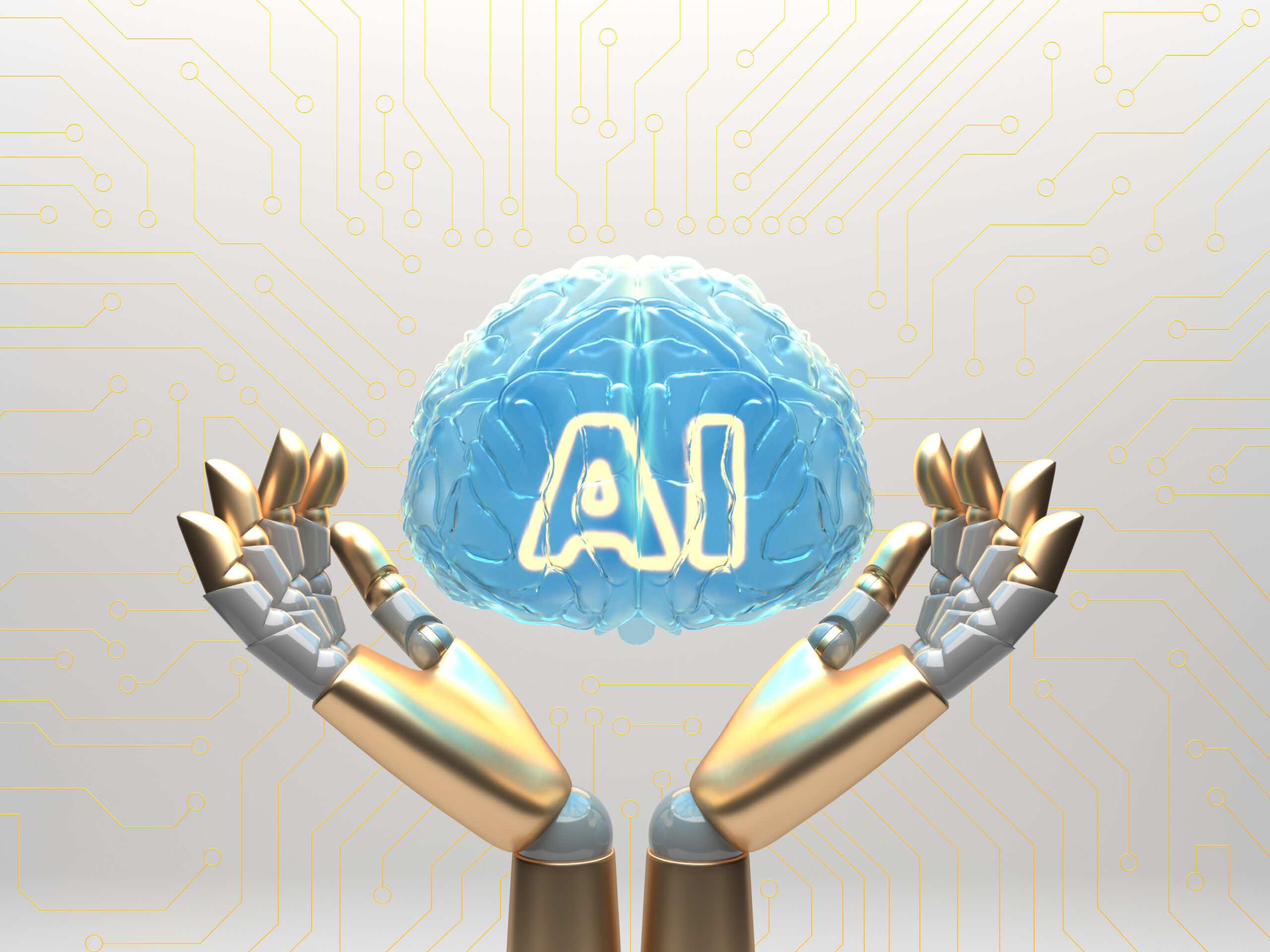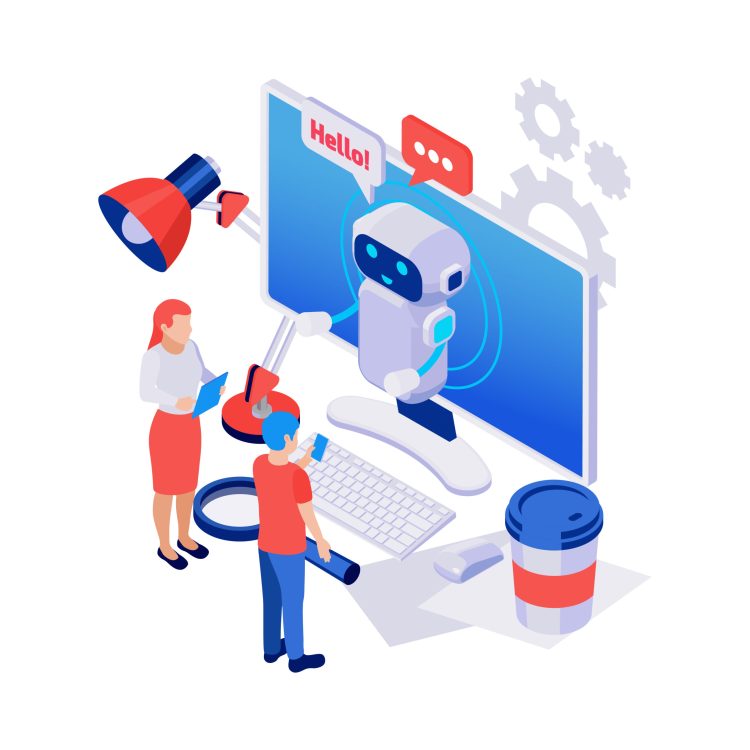The Impact of Artificial Intelligence on Digital Marketing

In today’s rapidly evolving digital landscape, staying ahead of the curve is essential for businesses looking to succeed in marketing their products and services. One of the most significant game-changers in recent years has been the integration of artificial intelligence (AI) into digital marketing strategies. From personalized customer experiences to advanced data analysis and automation, AI is reshaping the way marketers connect with their audiences and drive business growth. In this comprehensive guide, we’ll explore the transformative impact of AI on digital marketing and how businesses can leverage this technology to achieve greater success.
Understanding Artificial Intelligence in Digital Marketing
Artificial intelligence refers to the simulation of human intelligence processes by machines, particularly computer systems. In the context of digital marketing, AI encompasses a wide range of technologies and techniques that enable businesses to automate tasks, analyze data, and personalize experiences at scale. AI algorithms can process vast amounts of data to uncover valuable insights, predict future trends, and optimize marketing campaigns for maximum effectiveness.
Personalized Customer Experiences
One of the most significant benefits of AI in digital marketing is its ability to deliver highly personalized experiences to customers. By analyzing user behavior, preferences, and demographics, AI algorithms can tailor marketing messages and offers to individual users in real-time. From personalized product recommendations to targeted email campaigns, businesses can enhance customer satisfaction and drive conversions by delivering the right message to the right person at the right time.
Enhanced Data Analysis and Insights
AI-powered data analysis tools are revolutionizing the way marketers interpret and act on data. Instead of manually analyzing spreadsheets and reports, AI algorithms can automatically identify patterns, trends, and correlations within large datasets. This enables marketers to gain deeper insights into customer behavior, market trends, and campaign performance, allowing for more informed decision-making and strategy optimization.
Automation of Marketing Tasks
Automation is another key area where AI is transforming digital marketing. By automating repetitive tasks such as email marketing, social media management, and campaign optimization, businesses can streamline their marketing processes and free up time and resources for more strategic initiatives. AI-powered marketing automation platforms can analyze data in real-time, adjust campaign parameters on the fly, and even generate personalized content dynamically, leading to improved efficiency and effectiveness in marketing efforts.
Improving Customer Service with AI-Powered Chatbots
AI-powered chatbots are revolutionizing customer service by providing instant, personalized support to users around the clock. These intelligent virtual assistants can answer questions, provide product recommendations, and resolve issues in real-time, enhancing the overall customer experience and driving brand loyalty. By leveraging natural language processing (NLP) and machine learning algorithms, chatbots can understand and respond to user inquiries with human-like accuracy, significantly reducing the need for human intervention in customer support operations.
Ethical Considerations and Challenges
While the benefits of AI in digital marketing are undeniable, it’s essential to consider the ethical implications and challenges associated with its use. Concerns such as data privacy, algorithm bias, and transparency must be addressed to ensure responsible AI use in marketing practices. Businesses must be transparent about how they collect, store, and use customer data and take steps to mitigate algorithmic bias and discrimination. By prioritizing ethical considerations and adopting best practices for AI governance, businesses can build trust with their customers and avoid potential backlash or regulatory scrutiny.

Conclusion
In conclusion, artificial intelligence is revolutionizing the field of digital marketing, empowering businesses to deliver personalized experiences, gain deeper insights from data, automate marketing processes, and enhance customer service. By embracing AI-powered tools and techniques, businesses can stay ahead of the competition and drive meaningful results in their marketing campaigns. However, it’s essential to approach AI implementation with caution and consideration for ethical considerations to ensure responsible and sustainable use of this transformative technology. As AI continues to evolve, businesses that adapt and innovate will be best positioned to succeed in the dynamic digital marketplace of the future.
Frequently asked questions (FAQs) about the impact of AI
Artificial intelligence in digital marketing refers to the use of advanced algorithms and machine learning techniques to automate tasks, analyze data, and personalize marketing strategies. AI enables marketers to gain deeper insights into customer behaviour, optimize campaigns for better performance, and deliver more personalized experiences to their target audience.
AI enhances customer experiences by enabling businesses to deliver personalized content, recommendations, and offers to individual users based on their preferences, behaviour, and demographics. By analysing vast amounts of data in real-time, AI algorithms can tailor marketing messages to resonate with each customer, leading to higher engagement, conversions, and customer satisfaction.
Examples of AI applications in digital marketing include personalized product recommendations, predictive analytics, chatbots for customer service, automated email marketing, dynamic content generation, and predictive lead scoring. These AI-driven technologies help marketers streamline their processes, optimize campaigns, and deliver more relevant and timely messages to their audience.
AI revolutionizes data analysis in digital marketing by automating the process of extracting valuable insights from large datasets. AI algorithms can identify patterns, trends, and correlations within data that human analysts might overlook, enabling marketers to make more informed decisions and optimize their strategies for better results.
Using AI for marketing automation offers several benefits, including increased efficiency, improved targeting and personalization, enhanced campaign performance, and reduced manual effort. AI-powered automation tools can optimize marketing campaigns in real-time, adjust strategies based on data-driven insights, and deliver seamless, personalized experiences to customers across various channels.
When using AI in digital marketing, businesses must consider ethical concerns such as data privacy, transparency, algorithmic bias, and the responsible use of customer data. It’s essential to be transparent about how AI is used, ensure fairness and impartiality in algorithms, prioritize data security and privacy, and adhere to relevant regulations and guidelines to maintain trust and integrity in marketing practices.